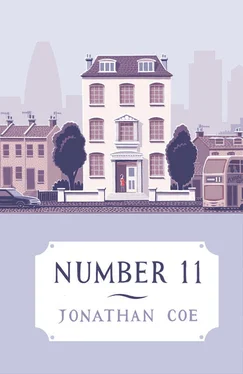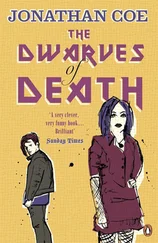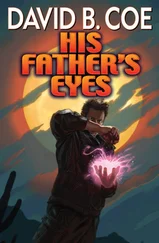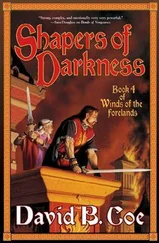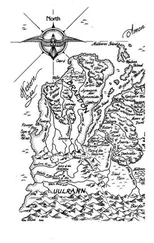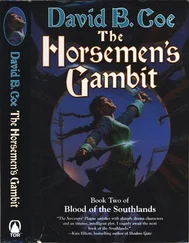‘That sounds nasty,’ said Rachel. ‘Was he OK?’
Jules shook his head. ‘He died. That was when Health and Safety closed the whole thing down.’
Rachel shuddered. She had a long-standing fear of underground spaces, and felt distinctly uneasy at the thought that, beneath the elegant, comfortable rooms of the Gunns’ house, a matter of mere feet from the kitchen she used every day, there yawned this pit, this fathomless void. It seemed incredible that the only thing preventing the house itself from collapsing into it was a fragile frame of steel rods and girders. She tried to block the idea from her mind.
Rachel did not see much of the girls at weekends. If Madiana and Sir Gilbert were out of the country, the twins were sometimes flown out to join them. Occasionally Jules would have to drive them to the Cotswolds, where the Gunns kept a ‘cottage’: actually a cluster of converted farm buildings, including a swimming pool and sauna complex which was itself twice as big as most people’s houses. Mortimer, the golden retriever, would sometimes go with them to the cottage, although now and again they forgot to take him. The London house was never lively at the best of times: at the weekends, when only Rachel, the housekeeper and her husband were in residence, and the building works at all the neighbouring houses were suspended, it could be chillingly silent.
*
One lunchtime, after she had been living in the Gunns’ house for a few weeks, Rachel was downstairs in the staff kitchen, watching the television. She had made herself a sandwich and was feeding scraps of cold chicken to Mortimer, who sat at her feet, tired but content after returning from his walk with Livia, the smiling, pensive Romanian dog-walker who called at the property every day to give him his exercise.
Rachel was watching the lunchtime news, without paying it much attention. Currently there was an item about the construction of Crossrail, the big new transport project designed to connect the City of London with the outermost eastern and western suburbs, entailing a number of deep excavations across the capital which were (not unlike the Gunns’ basement works) creating a lot of inconvenience for many Londoners. The report today came from Liverpool Street station, where it seemed that the construction workers had made a ghoulish discovery: twenty-five human skeletons, probably dating back to the fourteenth century and providing evidence that the current works might be taking place on the site of a burial ground for victims of the Black Death.
And then Rachel had a surprise: a nice one. The academic expert they had brought in to talk about the find was Laura Harvey, her old tutor from Oxford. She was smartly dressed in a grey pinstriped jacket over an open-necked white blouse, was wearing her hair shorter than before, and looked thoroughly glamorous and composed.
‘So, Professor Harvey,’ the newsreader was saying, ‘you think that this discovery may not just be of historical value, but worth something in monetary terms as well?’
‘Yes,’ said Laura. ‘Of course I’m not talking about the market value of the remains if people were to try and sell them. I’m saying that discoveries like this add to the sense of mystery which attaches to parts of London, and that sense of mystery is one of the things that attracts people here.’
‘Tourists, you mean.’
‘Yes.’
‘And you’re part of a movement, I believe, which is tasked with the job of assigning value to phenomena such as this?’
‘That’s right. As members of the Institute for Quality Valuation, we attempt to quantify things that have traditionally been thought of as unquantifiable. Feelings, in other words. A sense of awe, a sense of wonder, even fear — in fact, fear in particular. Look how popular the London Dungeon is.’
‘ Monetizing Wonder was the title of your book on this subject, wasn’t it? But that was mainly a book about films.’
‘Well, London has been the setting for countless films, and the stories which filmmakers have framed around these settings are among the things which draw people here. What’s been uncovered at Liverpool Street today, for instance, is strongly reminiscent of a number of famous London films. I’m thinking of Quatermass and the Pit , from the 1960s, in which a construction crew digging a new tube line unearths a human skeleton, among other things; or Death Line , made a few years later, in which a disused Underground station turns out to be housing a colony of cannibals. It doesn’t matter whether people have actually seen these films or not: collectively, they are part of our consciousness. They tell us something important about London, which is that we’re never quite sure what lies underneath us, beneath our feet. There is always the sense that if we dig too deeply beneath London’s surface, we might uncover something sinister, something nasty. People find this a frightening idea, of course, but also rather an exciting one.’
‘Finally, Dr Harvey, would you care to put a value — a monetary value — on today’s discovery at Liverpool Street?’
‘Yes, of course. We’ve developed an algorithm to produce quick and very rough estimates for this sort of thing, taking into account all the historical, cultural and literary factors, and we estimate that the discovery of these human remains today probably adds about £1.2 million to the value of London as a whole.’
‘Fascinating stuff. Professor Laura Harvey, thank you very much. And now — how should we cope with the problem of trained jihadists returning to the UK? We take a look at Denmark, where they are experimenting with a very different approach to this question …’
‘It’s wonderful to see you again, Rachel,’ Laura said. ‘Thank you so much for getting back in touch.’
‘I should have done it ages ago,’ said Rachel. ‘But I wasn’t sure where you were working any more. It was such a shock, seeing you on the TV …’
‘Well, I’m a bit embarrassed about that.’
‘Why? I thought you came across incredibly well. So confident and articulate.’
‘Yes, but … this new public role I seem to be acquiring. I feel very ambivalent about it.’
She stirred her cappuccino and took a tentative sip. They were sitting in the Housman Room, the senior common room at University College, London, on a quiet Thursday morning with not many other lecturers or research students for company. It was a bright and cheerful space, with colourful modernist abstracts hanging on the walls and autumn sunlight pooling in through a glass cupola. Sinking back into one of the comfortable leather armchairs, Laura looked thoroughly at home there. She had been on the staff at UCL for two years now, her job title — Professor of Contemporary Thought — testifying to the fact that she had started to expand her academic horizons since teaching Rachel at Oxford.
‘Basically,’ she said, ‘I’ve done a deal with the devil. The devil in this case being Lord Lucrum. He was Master of our college, remember?’
‘Of course. Is he not any more?’
‘No. He left a few months ago, to spend more time with his committees. One of which, much to my amazement, he asked me to join. He’d actually read my book — or got someone to read it for him. Pretty surprising, in either case, since I never thought that a book of essays about obscure British films would interest anyone other than the occasional fanatic like my late husband. But I think it was the title that caught his fancy, more than anything else.’
‘Is this to do with that institution you mentioned in the interview …?’
‘That’s right. The Institute for Quality Valuation — of which he’s the director. Sounds pretty innocuous, doesn’t it?’
Читать дальше
